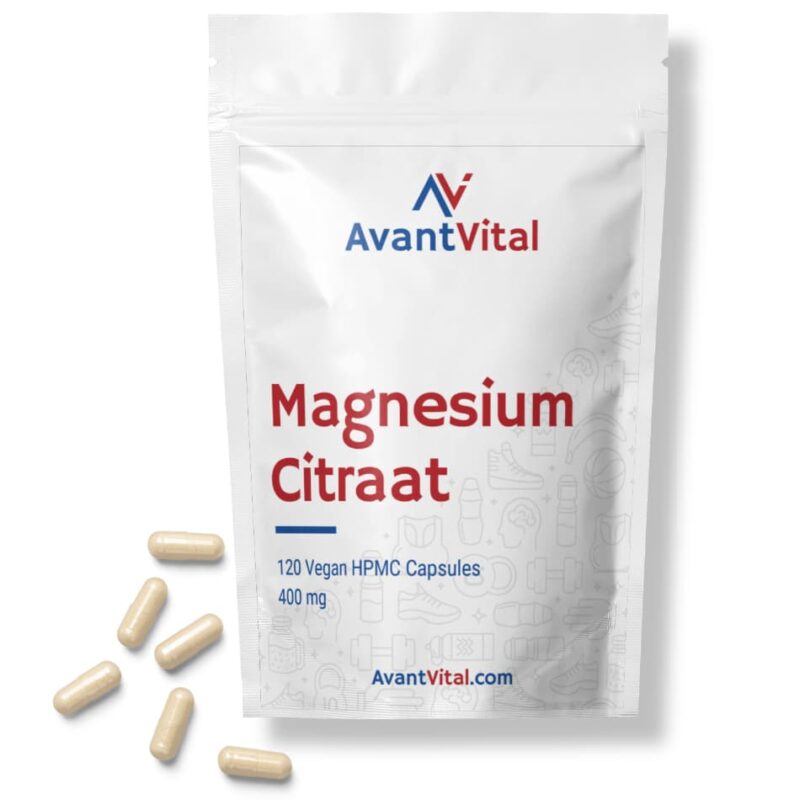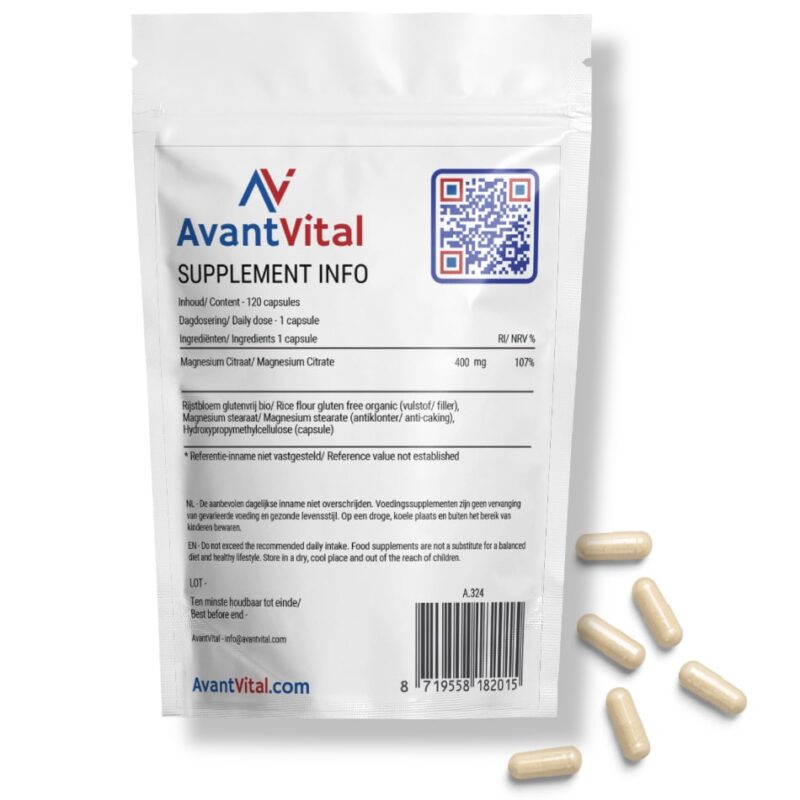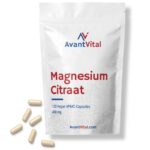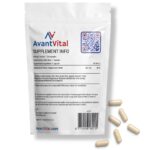What is Magnesium Citrate
Magnesium Citrate, also known as magnesium citrate, is a combination of magnesium carbonate and citric acid. This combination is made in this way because it allows magnesium to be best absorbed by the body.
Magnesium is a natural chemical element found in the human body, as well as an alkali metal abundantly present in Earth’s biochemistry.
Properties
In the body, magnesium plays a versatile and important role. It contributes to psychological function, energy, the nervous system, maintenance of bones, cell division, protein synthesis, electrolyte balance, muscle function, helps reduce fatigue, and keeps teeth strong.
Psychological Function
- Contributes to mental resilience
- Supports a clear mind
- Good for mood
- Good for learning performance
- Good for concentration
- Good for memory
- Beneficial for a good mental balance
- For mental energy
Energy
- Activates your natural energy in the body
- Helps release energy from fats, carbohydrates, and proteins
- Supports energy levels
Fatigue
- Helps reduce fatigue and tiredness
- Supports in cases of low energy
- Contributes to extra energy in times of fatigue
- Helps reduce a lack of energy
- Helps you feel fit again and contributes to fitness
Nervous System
- Plays a role in signal transmission between (nerve) cells
- Has a positive influence on the functioning of the nervous system
Bones – Maintenance
- Contributes to the maintenance of strong bones
Cell Division
- Has a beneficial effect on the cell division process
- Contributes to the process of cell renewal
Protein Synthesis
- Helps build (body) protein
Electrolyte Balance
- Helps maintain the normal balance in the body’s water and mineral balance
Mouth and Teeth – Maintenance
- Helps keep teeth strong
Muscles – Function
- Supports normal muscle function
- Plays a role in maintaining flexible muscles
- Plays a role in maintaining strong muscles
Usage
The most common dose is 400 mg of Magnesium Citrate per day. It should be taken on an empty stomach with a large glass of water. The 400 mg magnesium provides 107% of the RDI for adults, so it is advised not to take more than 1 capsule of Magnesium Citrate per day.
Do not use if you are under 18, pregnant, or breastfeeding. Do not use if you have high blood pressure or medical complications. Always consult a professional before starting new dietary supplements. A healthy lifestyle is important, as is a varied and balanced diet, which supplements are not a substitute for. Do not exceed the recommended dosage.
Recommended dosage: Take 1 capsule daily as a dietary supplement for adults, preferably before a meal.
Side Effects
Excessive doses of Magnesium can paralyze the central nervous system, known as magnesium narcosis, which should always be avoided. However, at the usual dose of 400 mg of Magnesium Citrate per day, no side effects are known apart from its laxative effect. If this occurs undesirably, drink enough water to avoid dehydration.
Ingredients
Disclaimer
This product is not intended to diagnose, treat, cure, or prevent any disease. This supplement is not a substitute for a varied and balanced diet and a healthy lifestyle. Do not exceed the recommended daily dosage. Keep out of reach of children. Consult your doctor or healthcare provider before using this supplement, especially if you are pregnant, breastfeeding, taking medication, or have a medical condition.
When sharing information about health and wellness, we are bound by restrictions imposed by European and Dutch regulations. These limitations are in place to protect you and ensure we do not make unsubstantiated health claims. It is important to note that while traditional or non-Western medical practices hold their own place and respect, EU legislation requires that health claims must be based on recognized scientific evidence. Within these frameworks, we aim to be as informative as possible without exceeding legal boundaries.





